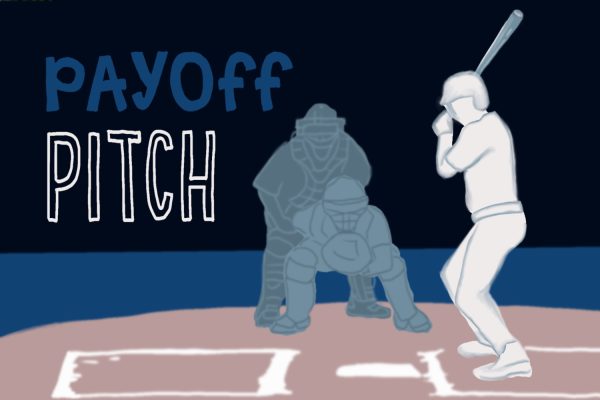On Oct. 17, as the Los Angeles Dodgers completed a four-game sweep of the Milwaukee Brewers in the National League Championship Series, they punched their second consecutive ticket to the World Series and inched one step closer to their goal of becoming MLB’s first repeat champions since the 2000 New York Yankees.

“Let’s get four more wins and really ruin baseball,” Los Angeles manager Dave Roberts said following the win.
He was responding to a widespread fear in the baseball world: That the Dodgers organization, with its massive spending on free agents — a result of its privilege as a big-market team — is “ruining baseball” and creating a monopoly on World Series championships for the foreseeable future.
Yes, the Dodgers currently spend the largest sum of money on their roster of any MLB team. But spending isn’t the end-all, be-all of the problem. Los Angeles and its ownership have paved the way for success because the Dodgers franchise is the most intelligently-run organization in baseball.
Contributing to its record-breaking payroll, Los Angeles has three players on its roster who seem destined for Cooperstown: outfielder-turned-shortstop Mookie Betts, first baseman Freddie Freeman and two-way star and perennial MVP candidate Shohei Ohtani.
It’s not all a money issue, though. The Dodgers have been smart, and spending alone couldn’t have created the Cerberus at the heart of the LA lineup.
The Dodgers’ front office pounced on Betts by brokering the blockbuster trade with the Boston Red Sox, preventing the bidding war that would have inevitably broken out over the one-time MVP had he reached the open market.
Los Angeles then revolutionized modern MLB contracts by deferring the vast majority of Ohtani’s $700 million total contract earnings, allowing it to construct an even better roster before having to shell out the big bucks to the Japanese superstar.
That’s not against the rules — it’s smart business.
And yes, the Dodgers are incredibly privileged to have a top-end owner in Mark Walter. Walter bought the Los Angeles Lakers in 2025 and owns the entire Professional Women’s Hockey League, where teams compete to win the Walter Cup.
But these are just more signs that, beyond his wealth, Walter is a good owner. He cares about winning and changing the landscape of sports. The real problem is that many MLB owners do not.
Looking at a ranked list of MLB teams by payroll as a percentage of team revenue, it becomes clear that the spending ratio is a more accurate measure of success than market size alone.
The top six teams with the highest ratio of 2025 payroll and luxury tax spending to their 2024 revenue were the New York Mets, the Dodgers, the Toronto Blue Jays, the Philadelphia Phillies, the Arizona Diamondbacks and the San Diego Padres.
While only the Dodgers out of those teams have gone all the way in the 2020s, each has seen more success than Pittsburgh Pirates or Chicago White Sox fans could dream of.
The Padres — whose San Diego television market stood at 30th largest in the nation by Nielsen rankings in 2025 — have handed out Dodgers-sized contracts to stars Manny Machado, Fernando Tatis Jr. and Xander Bogaerts. They’ve been rewarded with four playoff appearances this decade.
The Diamondbacks are just a few years removed from a National League pennant.
Owners who care and spend, even in small markets, can compete with the Dodgers. Conversely, big-market owners who keep their wallets sealed won’t produce competitive on-field products.
For example, the Red Sox come in at No. 23 on the BrooksGate payroll list, despite pulling in the fourth-highest revenue of any MLB team. Boston made the postseason in only two of the last seven years.
The Dodgers spent 73% of their total revenue on payroll, including luxury tax spending. If the Chicago Cubs used 73% of their revenue on their roster, they’d be spending more than $420 million.
That figure would trail only the Dodgers, surpassing the payrolls of consistently competitive teams in recent years like the Yankees and Phillies.
If the Pirates did so, their spending would exceed that of the Atlanta Braves and Texas Rangers and fall just short of the Houston Astros. All three of those teams have won World Series titles this decade and retain expensive, top-tier players.
The best part of the Dodgers’ organization isn’t its rampant spending. The Dodgers care deeply for their players and fans, making Los Angeles a city where free agents want to play.
In a show of support for international players and a city home to millions of immigrants, the Dodgers stood up to ICE and the Trump administration in June 2025 by refusing to let federal agents enter the Dodger Stadium grounds.
Los Angeles annually re-signs former player Andrew Toles, who was diagnosed with debilitating bipolar disorder and schizophrenia, so he can have access to the team’s health insurance. Toles will all but certainly never play in the major leagues again and is placed on the restricted list, but the team hasn’t forgotten him.
The organization was a finalist for the 2025 Allan H. Selig Award for Philanthropic Excellence for its financial and community support of relief efforts during the devastating wildfires that ravaged Greater Los Angeles this past January.
Ohtani’s mere presence gives the Dodgers an advantage with Japanese free agents: Who wouldn’t want to play with the face of Japanese sports?
It’s not money alone that made the Japan connection happen: The Dodgers have made unprecedented, historic efforts to reach out to and accommodate Japanese players, from sending more scouts to Asia to employing Japanese-speaking staff and trainers.
The Dodgers do have a financial advantage over the rest of the league — but they also have one of the most passionate owners in the sport and one of the most philanthropic organizations in baseball. Los Angeles cares for its players and fans. Japanese children grow up dreaming of becoming Los Angeles Dodgers.
It’s your team that needs to catch up.



















































































































